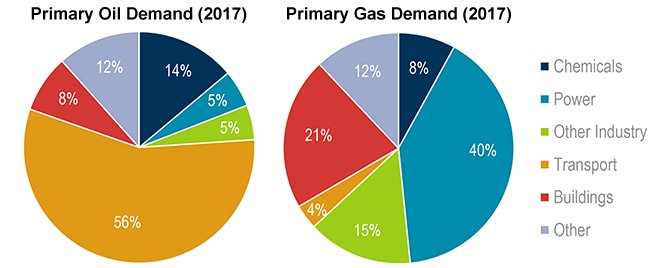Journal of Chromatography & Separation Techniques
Open Access
ISSN: 2157-7064
ISSN: 2157-7064
Market Analysis - (2021)Volume 12, Issue 2
Oil and Gas studies the transformation of crude oil (petroleum) and natural gas into useful products or raw materials. These petrochemicals have become an essential part of the chemical industry today.
Petrochemicals are chemicals derived from petroleum or natural gas. They are an essential part of the chemical industry as the demand for synthetic materials grows continually and plays a major part in today's economy and society.
Petrochemicals are used to manufacture thousands of different products that people use daily, including plastics, medicines, cosmetics, furniture, appliances, electronics, solar power panels, and wind turbines. Petrochemicals are derived from hydrocarbons such as propane, ethane, butane, or other components separated from crude oil and natural gas liquids. Naphtha - a mixture of flammable liquid hydrocarbons - is also important in the production of products made from petrochemicals.
Chemical engineering is a branch of engineering that uses the principles of chemistry, physics, mathematics, biology, and economics to efficiently produce, design, transport and transform energy and the materials. Chemical engineering design concerns the creation of plants, specification, and economic analyses for pilot plants, new plants or plant modifications.
Design engineers often work in a consulting role, designing plants to meet clients' needs. Design is limited by a number of factors, including funding, government regulations and safety standards. These constraints dictate a plant's choice of process, materials and equipment.
The Oil and Gas Conference 2020 is an event that aims to explore the ways to innovate in the field of Petroleum Engineering and Chemical Engineering, and to find advanced techniques for better industrial development. The conference will serve as a platform to bring together leading Petroleum Engineers, Chemical Engineers with different specialties such as Oil and Gas, Petrochemicals and Fuels etc. Oil and Gas Conference will discuss on the topics such as Enhanced Oil Recovery, Offshore and Onshore Technologies, Conventional and Unconventional Gas Technologies and Processing Technology, Offshore Oil and Gas Production, Natural-Gas Processing, Chemical Applications in Producing Oil and Gas, Chemical Reaction Engineering and Catalysis, Chemical Engineering Thermodynamics, Polymer Science and Engineering etc.
Oil and Gas Conference 2020 supported by the organizing committee network of renowned scientific and professional expert such as Christo Boyadjiev, Institute of Chemical Engineering, Bulgarian Academy of Sciences, Roya Dastjerdi, Yazd University, Iran it provided a platform for collaboration among colleagues, vendors, and academia to reveal new innovations, solutions, ideas, and emerging technologies in Chemistry.
A glance at a market of Oil and Gas industry:
Global oil and gas petroleum production has increased over the last five years, from 81.15 Million barrels per day in 2009, to 88.67 Million barrels per day b 2014. This has led to the supply for oil & gas exceeding its demand which has ultimately caused a decline in the prices of crude oil during the last six months of 2014.
Consequently, the oil and gas operators have reduced their capital expenditure outlook for 2015 citing concerns over low profit margins. This reduction has mainly impacted the upstream exploration and production (E&P) activities. However, the declining production from onshore oilfields in countries such as Russia, the U.K. and India among others has resulted in higher demand for exploring new offshore reserves. Drill pipe which are used to support drilling and exploration activities are expected to grow at a CAGR of 3.8% to reach USD 1,133.8 Million by 2020 from USD 940.62 Million in 2015. In this report, 2014 is considered as the base year and 2020 is considered as the forecast year. The report covers the grade of drill pipe as well as the application segments.

The oil & gas market is expected to grow from an estimated USD 3.22 Billion in 2016 to USD 4.54 Billion by 2021, registering a CAGR of 6.9% from 2016 to 2021. The global market is witnessing significant growth on account of the decline in natural gas prices, an increase in electricity demand, and low emission levels of the gas & oil compared to other fossil fuels. Increasing investments in distributed power generation are also expected to drive the demand for oil & gas across the globe.
Global Petro chemistry and Chemical Engineering Conferences going to be held during January, 2020 to December, 2020 at various cities in Europe (London, Barcelona, Madrid, Valencia, Rome, Milan, Berlin, Frankfurt, Vienna, Zurich.
Published: 24-Feb-2021
Copyright: This is an open access article distributed under the terms of the Creative Commons Attribution License, which permits unrestricted use, distribution, and reproduction in any medium, provided the original work is properly cited.